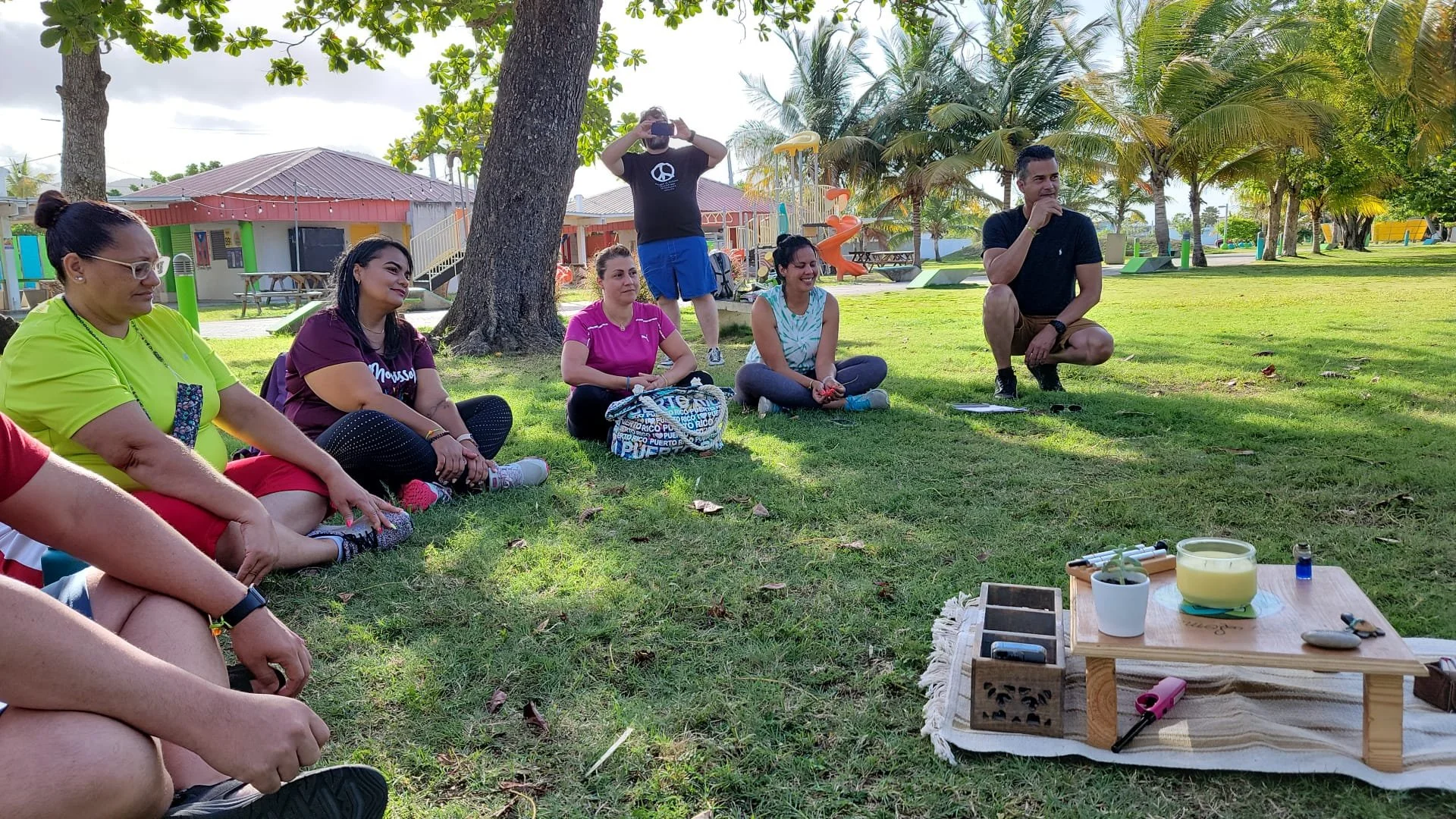Adult apprentices and Montessori public schools directors experience Erd-kinder
During the month of June, 18 adult learners from Secondary lived the wonderful experience of Erdkinder or immersion in nature, a program that serves young people from 12 to 18 years old, and follows the principles established by Maria Montessori in her essays on adolescence.
Montessori dreamed of a school where adolescents could develop optimally in the community, with their peers and guides, and in direct contact with nature. She promoted living in the countryside and on farms, learning about planting and agriculture, coexistence with other young people and adults in which everyone collaborates for the common good. Young people live together, cook together, manage the resources they have, carry out practical life tasks together, as a team.
They are also inserted in community projects that have to do with microeconomics, security, health and education for all. They are inserted into the world of service and work; They do volunteer work that benefits community members in need. They learn the value of hard work, teamwork, and finances.
The middle and high Montessori school is the practice of the "society" to which we aspire and is based on the universal values of healthy coexistence, respect, love for others, solidarity and union.
During this Erdkinder experience, strong bonds of friendship and brotherhood/sisterhood are created that last a lifetime, accompanying the young person during adolescence and early adulthood when he/she defines his/hers life, path, vocation. A community is formed, a united family.
Adult apprentices at this level, as part of their training, had their Erdkinder experience this summer
The Erdkinder component was held at the Center for Puerto Rican Lionism, in Barranquitas. They lived there for 5 days. The purpose of this component is for the teacher to go through the experience that they will then share with their middle and high school students.
The teachers experienced the cycles of nature, natural resources, and the issues involved in securing our food and clothing.
Some of the many activities they carried out were:
Work on agroecological farms: planting, land preparation, compost management
Visits and work with animals: apiary, cattle ranch, chickens
Planting of native trees in the San Cristóbal Canyon
Preparation of the food they ate
Carpentry and proper use of tools
Visit to the Barranquitas Handicrafts Fair
Appreciation and conservation visit to the river Botijas
Readings, films, discussions and Socratic seminars about our role as consumers and our responsibility for the problems that affect the environment
Talent Night and Traditional Games Night
The apprentices were able to take workshops and talks with farmers, beekeepers and ranchers. As well as crocheting, stone prints, wooden medallions, among others.
This experience was a time to learn and create awareness about the impact of human beings on the environment and how to work with it. Some of the comments of the participants indicate that the experience helped them to reflect and go out of their comfortable zone, others classify it as an unforgettable experience, which helped them transcend and apply what they lived in the school environment and in their life.
The school directors who have Secondary level in their schools... also experienced the Erdkinder
The school directors’ experience took place in Patillas during the week of June 27 to 30.
Juan José Rodríguez and Melissa Pintado, director and facilitator of the Secondary Program of the Auxiliary Secretary of Montessori Education (SAEM), designed the experience which included the presentation of the Secondary 3 and 4 curriculum, live experiences of many of its components and the opportunity to create community among them. They lived, like the guides of their schools, in direct contact with the land and nature.
Being this the first time that Erdkinder experience for directors has been carried out, various activities were included in those four days that many described as "The best learning experience in the area of administration that I have ever had". Between the experiences...
Community meetings
Erdkinder curriculum presentations
Live experiences of fishing, creation of güiros, carpentry, crafts with clay, cooking,
Group dynamics and community formation
Presentation and practice of elements of the Erdkinder environment: alone time, community meeting, peace table, circle of conscience, student led conference, Socratic seminar, among others.
Presentations and "talks" on the Montessori philosophical elements typical of the level of adolescence such as: adolescent psychology, levels of moral development, adolescent portals, youth goals, the ecological footprint, preparation of environments.
Immersed in the Patillas nature reserve, they received a talk on biodiversity and then watched the sunset from the kayaks.
They visited the Casa de la Selva and learned about its reforestation process with mahogany trees (mahoganies).
Community was done on the schools, learning about microenterprise and entrepreneurship, the formation of school gardens and urban gardens, and the creation of compost.
“...it has been the best learning experience in the area of school administration since I began my role as a school director,” said one of the participating directors.
The Erdkinder for some was a process of transformation, purpose and community strengthening.
This space helps directors to create community ties, to strengthen existing ones and to contribute to the development of authentic Montessori.



